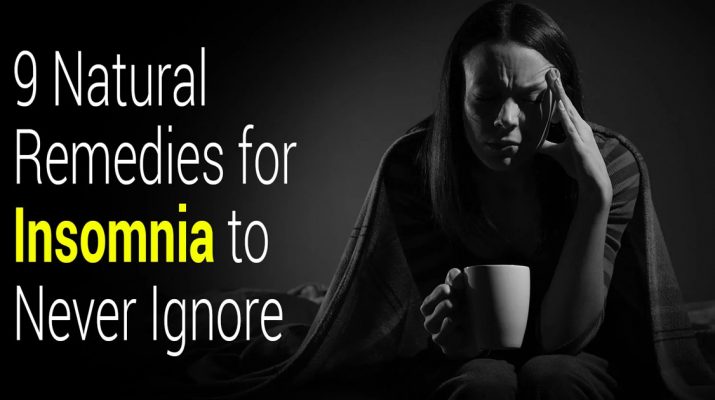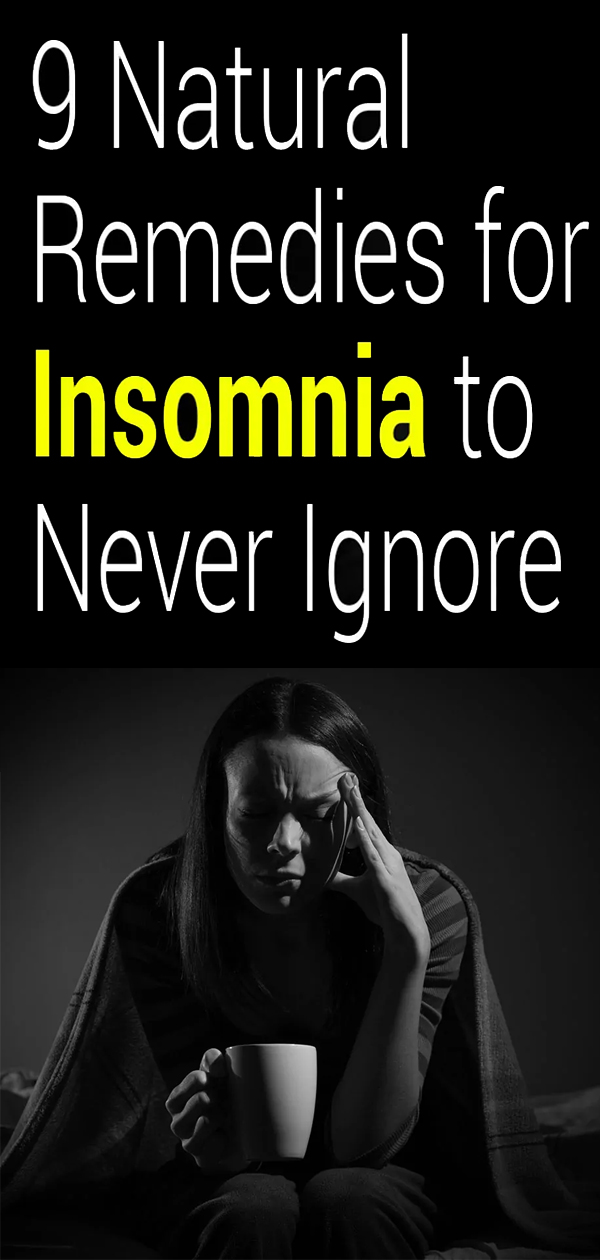Did you know that approximately 23% of US workers have insomnia, costing them about 12 days in lost productivity annually? If you struggle to fall asleep each night, you may be relieved to know that you are not alone. Notably, about 60 million Americans suffer from insomnia.
Insomnia is the inability to fall and remain asleep. Insomnia could be caused by a short-term issue or may stem from a lifetime of poor sleeping habits. In both cases, you cannot fix the issue by using sleeping pills.
This condition has long-lasting side effects that may significantly affect your whole life. You may experience sleepless nights, fatigue during the day, poor concentration span, and even health problems. Relieving insomnia is, thus, not just a desire but a necessity to most victims.
What Causes Insomnia?
Before we discuss the Natural Remedies for Insomnia, we should have a look at what causes this condition. Insomnia can be either short term (temporary) or long-term. However, no matter how long or short you will have to struggle to relieve it, insomnia is never fun.
Short-Term Insomnia
Short-term insomnia is often caused by stress or change in routine. It can also be caused by medications, such as antidepressants that mess with your sleep. Other medicines like allergy meds, blood pressure meds, and corticosteroids may also cause an inability to sleep.
For temporary insomnia, you can easily find a way to deal with the condition and resume your normal sleep pattern.
Long-Term Insomnia
Long-term insomnia may be caused by serious medical conditions, such as anxiety, depression, or sleep apnea.
Sometimes, long-term insomnia can be as a result of crappy sleep habits. Some of these scrappy habits include eating a lot of heavy snacks before bed. Also, sleeping in uncomfortable environments or being glued to your smartphone throughout the night may cause insomnia.
9 Natural Remedies For Insomnia To Never Ignore
1) Take Steps To Help You Manage Stress
If you keep on finding yourself worrying a lot, lying in bed, stress may be robbing you of your sleep. In fact, scientific research shows that almost 4 out of 10 Americans feel fatigued or tired due to stress. If not managed properly, stress may transform into severe health conditions like depression and anxiety. These conditions are likely to result in insomnia, stealing your sleep away.
Therefore, you should take the following steps to manage your stress to achieve a deeper, stress-free sleep:
Retiring Early To Bed
This may sound counterintuitive, but going to bed early does miracles as your worries tend to disappear on their own. Research suggests that you are likely to be overwhelmed with lots of negative thoughts if you say late.
Journaling
When you jot your worries down, they are unlikely to occupy your mind. This would allow you to focus on things that you appreciate, making you sleep better. In fact, a study published in Applied Psychology revealed that students achieved better sleep by writing in a gratitude journal.
Note that there are several of other effective ways to ease stress and make you relaxed. Other ways of managing stress, hence insomnia, include:
- Mind games such as guided imagery
- Progressive muscle relaxation.
- Sharing your worries with your loved ones
2) Make Time For Exercise
It is not news that being physically active helps you sleep well. Therefore, if you maintain some kind of daily exercise, you are likely to increase your chances of having a deeper, calmer sleep.
Most people find it easier to exercise early in the morning. However, you can exercise at any time of the day. Your body is made to move. Therefore, when you use up excess energy during exercise, it would tend to recover during sleep.
Research shows that an hour of daily exercise every week makes one experience a more normal REM sleep than non-exercisers. Nonetheless, you do not have to sweat it out to gain the benefits of exercise. Even insomniacs who exercise tend to sleep longer and wake up less frequently at night than their sedentary counterparts.
3) Eat Pro-Sleep Foods
It may sound crazy, but what you eat or drink may make you sleep soundly or stay awake at night. In fact, the food or drink you take has chemicals that either make you drowsy or relaxed.
If you want to fight insomnia, you should avoid sleep stealers. Meanwhile, try adding the following edibles to your dinner menu or use them as nighttime snacks:
- Cheese
- Cherries
- Bananas
- Whole-grain crackers
- Almonds
- Salmon
- Low-fat milk
However, eating the right snacks or drinking the right food is not the only way out of insomnia. You should also avoid these wrong edibles and drinkables at all cost if you are fighting insomnia:
- Alcohol
- Spicy foods
- Coffee and other caffeine-rich beverages and drinks
- Fatty foods
4) Sleep-Promoting Herbal Remedies
You can fight insomnia by using herbal remedies, which could make it easier for you to nod off. They include:
St. John’S Wort
Most people use this yellow, weed-like flower to ease depression symptoms such as insomnia and anxiety. If you make tea using St. John’s wort, avoid direct sunlight as your skin may become sensitive to UV rays.
Chamomile Tea
Chamomile tea is very delicious and effective in easing insomnia. It has been used as a relaxation aid for several years. Chamomile tea is a mild sedative that helps to calm your nerves, ease insomnia, and reduce anxiety. Do not be afraid of overdosing.
Valerian
Like chamomile tea, the root of this flowering plant helps reduce anxiety and ease insomnia.
Passion Flower
This delicious, tropical flower is a mild sedative. Steep a teaspoon of passionflower in boiling water for about 10 minutes and drink before sleeping.
Kava
The root of kava promotes relaxation, easing insomnia and reducing anxiety.
5) Use Sunlight To Promote The Production Of Healthy Melatonin
Did you know that your body relies on natural light to determine when to pump out some energizing hormones? Your body also needs natural light to produce hormones that enable you to feel relaxed and sleepy, just like melatonin. Melatonin is the sleep hormone.
Although the sun may force you to wake up in the morning, it can help you sleep well at night. Daylight helps your body to figure out when to feel awake, tired, or asleep. When your hypothalamus senses that there is a change in light, it prompts your body to regulate its production of melatonin.
It is worth noting that your body does not produce much melatonin during the day. As a result, you feel alert and energized during the day. On the other hand, it produces much melatonin at night, making you feel tired and sleepy.
One of the best ways to keep yourself on schedule is to flood your body with the natural light. This should happen as soon as you wake up from your bed. By doing so, you will be sending a very clear message to your body that it is time for waking up. This is as simple as opening your blinds or exercising outside to get the natural light.
6) Sleep In A Comfortable Bedroom
You may not appreciate the power of a comfortable bedroom until you spend a night in a wonky mattress or a very hot room. The situation can be worse if you have insomnia.
Make your bedroom as comfortable as possible by implementing the following:
- Using comfortable bedding.
- Turning down the temperature
- Turning down the noise
- Cutting off the lights
- Picking a comfortable mattress
These will do you wonders.
7) Adopt A sleep-friendly Lifestyle
Even if you have embraced other natural remedies for insomnia, some lifestyles may not allow you to sleep soundly. Consider making the following sleep-friendly lifestyle changes:
Showering At Night
Try bathing at night instead of in the morning. It is worth noting that the heat from the warm, pre-bedtime shower makes your nervous system relaxed and slowed down. This makes you sleepy. Therefore, if you only shower once a day, consider doing it at night instead of morning hours.
Powering Down Your Devices At Night
The light that your smartphone, iPad, or laptop emits can be referred to as the digital version of caffeine. This light makes your brain feel revved up, instead of relaxing and sleepy. Kindly turn off your gadgets at least one hour before sleeping to make your brain relaxed and ready to sleep.
Sniff Lavender Before Bed
This is another hilarious hack, but the scent can significantly affect your mood. If you feel your bedroom with aromas that are believed to promote relaxation and ease anxiety, you are likely to sleep well. Take the advantage of aromatherapy, filling your bedroom with clary sage, spikenard, lavender, vetiver, myrrh, or frankincense.
8) Mindfulness Meditation
Mindfulness meditation entails slow and steady breathing while sitting quietly. When undertaking this routine, you have to observe your thoughts, breath, feelings, body, and sensations while they rise and pass.
This practice promotes sleep as it helps reduce stress and improve your concentration while boosting your immunity.
9) Yoga
This ancient practice does not only help you in toning but also in managing stress, thus eliminating insomnia. In fact, its psychological results can even be observed at the physical level. Yoga practitioners tend to have low levels of inflammatory stress markers in their blood.
Final Thoughts On Conquering Insomnia Naturally
Insomnia has several side-effects and may lead to severe health conditions if not managed. The good news is that it can be eased using various natural remedies. The first step is to accept the condition and work towards saving yourself from this condition. Afterward, do not ignore the power of the aforementioned natural remedies for insomnia.


